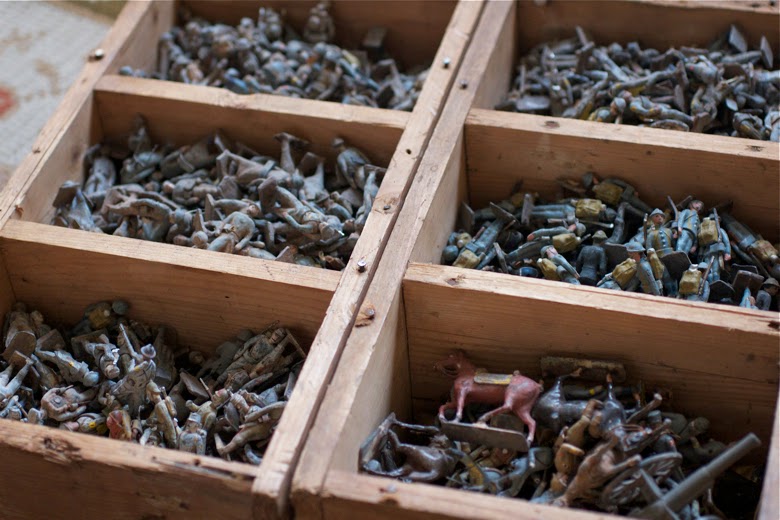My song, I fear that
thou wilt find but few
Who fitly shall
conceive thy reasoning,
Of such hard matter
does thou entertain
So begins the 58-page rule book-cum-manifesto drafted by
Alberto Figuira Jardim to govern his campaigns of lead soldiers in the field,
tin planes in the sky, and wooden ships on the pond. Though both a lawyer as
well as a professor of English and philosophy, Mr. Jardim clearly had much time
on his hands. Beginning in 1915, he molded and painted, named and numbered,
thousands of soldiers and brought them into action on a massive battlefield on
the grounds of his summer house, the Quinta da Estrela in the village of Caniço,
on the Portuguese island of Madeira, a thousand kilometers from anywhere. “You didn’t watch television in those days,”
explained his grandson Miguel. At a time when Europe was convulsing with the
bloodshed of the First World War, Alberto Jardim created his own scenes of valor
and devastation, as the brave young sons of two imaginary foes – the nations of
Glottenberg and Tulare – fought each other tooth and nail in the imaginary land
of Mandolia. Keeping fastidious notes of the day’s casualties, and plotting
strategies for the next day’s campaigns, Mr. Jardim laid waste to wooden
villages with hand-made bombs dropped from planes that zipped along wire lines.
When Mr. Jardim moved Tularese forces to the outskirts of a particularly ornate
town at the corner of his property, and then allowed it to be burnt to the ground
by the forces of Glottenberg as they beat a hasty retreat, his grandson
demanded to know how he could be so reckless with something that had taken him
many weeks to build. “Ah, my boy,” he exclaimed, “but that is the stupidity of
war.”





























One of the best Wardens posts to date.
ReplyDeleteIt is an incredible collection worthy of a museum exhibit.
ReplyDeleteWhat an incredible collection! I admire the beautiful cursive handwriting.
ReplyDeleteI wish I had a better vocabulary to describe how this is literally the meaning of the word "awesome". On a separate note: What camera did you use to take these pictures? The quality is outstanding!
ReplyDelete